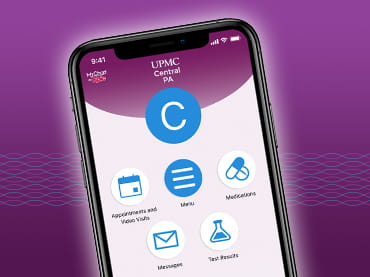UPMC Pinnacle Breast Care Center offers comprehensive breast and breast cancer care. This includes risk assessment and screenings for breast cancer, breast cancer treatment and then survivorship services. All of this is provided in an attentive and compassionate environment.
Our team includes breast surgeons, medical oncologists, nurse practitioners and a genetic counselor. These specialists work together to deliver the best and highest quality of care. We also have a wonderful team of nurse navigators who work closely with patients to help guide their care during their treatment journey.


















